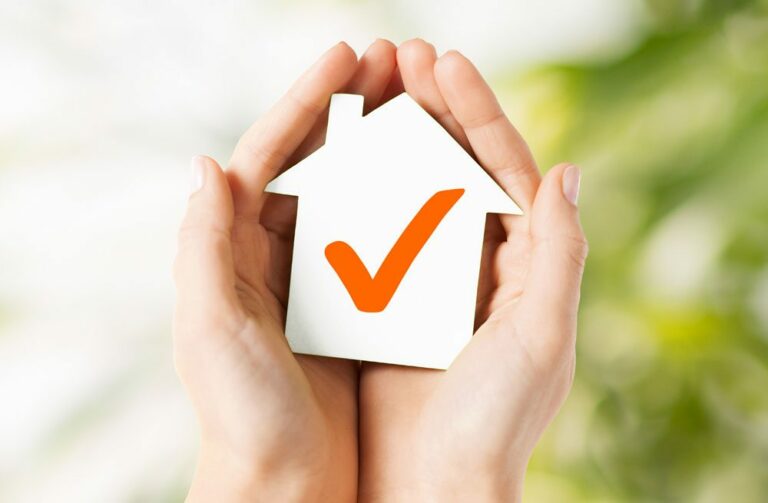Landlord obligations can be tricky, and it’s sometimes hard to know what exactly you’re responsible for. That’s why we’ve put together this easy list to help you on your way to becoming a super landlord.
Safety
Gas Safety
According to the Gas Safe Register, the Gas Safety (Installation and Use) Regulations 1998 outline your duty as a landlord to ensure all gas appliances, fittings, chimneys, and flues are working safely and efficiently. You must have a gas safety check annually carried out by a registered Gas Safe engineer. Once complete you’ll be given a Landlord Gas Safety certificate, this is also referred to as a CP12 with the details of all the checks performed.
For more information, look at landlords’ section on the Gas Safety website.
Electricals
A change in regulations for landlords requires landlords to have any electrical installations within their properties inspected and tested by someone who is official qualified this must be done a minimum of every 5 years. Landlords must provide a copy of the safety report to tenant’s and their local authority.
To find out more about the safety standards, visit the government advice for landlords in the private rent sector.

Fire Safety
If you’re renting your property, you’re also responsible for fire safety.
According to government guidance, there is a legal requirement to have at least one working smoke alarm installed on every storey which is used as living accommodation. As well as a carbon monoxide alarm in any room that is being used as living accommodation where solid fuel is used. The landlord (or someone acting on behalf of the landlord) must make sure the alarms are in working order at the start of each new tenancy.
After the landlord or someone acting on behalf of the landlord has tested the alarms on the first day of the tenancy, tenant’s should then take responsibility for their own safety and test all alarms regularly to make sure they are in working order. Testing the alarms monthly is generally considered appropriate. If tenants find that their alarm(s) are not in working order during the tenancy, they are advised to arrange the replacement of the batteries or the alarm itself with the relevant landlord.
Check the government’s guide to alarms for further information.
Other fire safety regulations cover:
- Check that there is always access to all escape routes
- Ensure any furnishings provided are fire safe
- Provide fire alarms and extinguishers if the property is a large house in multiple occupation (HMO)
For more information visit the Housing health and safety rating system (HHSRS).
Paperwork
Deposit Protection
Legally, you must place your tenants deposit in a tenancy deposit protection (TDP) scheme if you rent your home on an assured shorthold tenancy. This prevents anyone keeping hold of the money that shouldn’t. If you received a valuable item as a deposit opposed to money, you do not have to place it in a TDP.
These government backed schemes assure that your tenants get their deposit money back providing that:
- They met the terms of the tenancy agreement
- Do not damage the property
- Pay rent and bills
Either yourself or your letting agent must put your tenants deposit in the scheme within 30 days of receiving it.
Energy Performance
As a landlord, you need to provide a valid Energy Performance Certificate (EPC) to legally let a property. An EPC will look at the energy performance of a property and will make advisements on how to improve it. Tenants should receive a copy of the EPC when they move in.
It is a requirement for residential landlords to ensure their Energy Performance Certificates (EPCs) have a minimum rating of E.
The EPC must be carried out by an accredited domestic energy assessor (DEA) which you can source in your area from the government’s official EPC register.
How to rent guide
As part of the assured shorthold tenancy notices and prescribed requirements, private landlords are required to give their tenants a copy of the how to rent guide created by the government. Access the how to rent guide. You can provide it as a hard copy or by email if the tenant has provided an email address.
You cannot serve a section 21 notice if you haven’t provided the tenants with the how to rent guide.
Right to rent
Legally landlords in England must not let anyone without the ‘right to rent’ rent a property from them and may face a fine or even imprisonment if they fail to comply.
Before the start of a new tenancy, you must check all tenants aged 18 and over, even if:
- They’re not named on the tenancy agreement
- There’s no tenancy agreement
- The tenancy agreement is not in writing
Read more on the gov website about the tenant’s right to rent for landlords.

Admin
Paying Tax
Landlords must declare their rental income to Her Majesty’s Revenue and Customs (HMRC). Landlords can be fined and prosecuted if they fail to disclose their income to HMRC. Check the self-assessment tax returns for more information.
If you live abroad, you still have to pay tax on any rental income unless you have an exemption certificate.
Landlords expenses are usually tax deductible, known as allowable expenses. Your profit is calculated by deducting ‘allowable expenses’ from your rental income.
These may include:
- Water rates, council tax, gas, and electricity
- Landlord insurance
- Cost of services including wages of any cleaners or gardeners (as per rental agreement)
- Letting agents’ fees
- Legal fees for lets of a year or less, or for renewing a lease of less than 50 years
- Accountants fees
- Ground rents and service charges
- Direct costs such as phone calls, and advertising new tenants
You can work out your rental income when you let a property by taking a look at the gov website to find out more.
Licensing and permission
Before considering renting a property, you must have the freeholders’ consent. If you have a mortgage, your lender will need to know you rent the property and you will need to get landlord’s insurance.
Condition and repairs
To meet your landlord responsibilities, you must be responsible for:
- The structure and exterior of your property including the roof, walls, foundations, drains, guttering, external pipes, windows and external doors
- Basins, sinks, baths, toilets, and their pipework
- Gas and water pipes, electrical wiring, water tanks, boilers, radiators, gas fires, fitted electric fires and/or heaters.
You are not able to pass on any repair responsibilities to your tenants or the cost of any repairs. If any repairs are necessary throughout the tenancy, the tenants need to make you aware.
If you visit the property to assess damage or make repairs, you must give tenants at least 24 hours of notice.
We hope this easy guide has made things well a little easier for you.
This blog serves only serves as a guide. If you’re not sure what to do, please speak to a legal expert.





